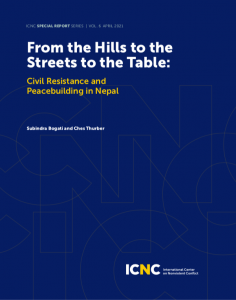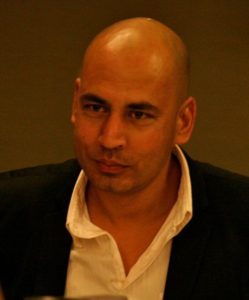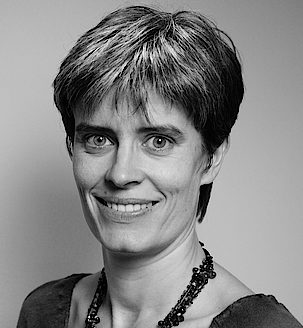Tuesday, April 27, 2021
with authors Ches Thurber and Subindra Bogati, and responding Véronique Dudouet
Download the Free PDF
Webinar Content
Introduction of Speakers: 0:00 – 4:28
Presentation: 4:29 – 31:44
Respondent: 31:45 – 46:26
Questions & Answers: 46:27 – 1:23:52
Webinar Description
ICNC is pleased to have hosted Ches Thurber and Subrinda Bogati as they discussed the findings of their special report on peacebuilding and civil resistance strategies in Nepal, using Veronique Dudouet’s conceptual framework from her ICNC special report, Powering to Peace: Integrated Civil Resistance and Peacebuilding Strategies.
 While civil resistance and peacebuilding have largely existed as two separate approaches to conflict transformation, new efforts are being made in scholar and practitioner communities to identify and explore linkages between the two. This presentation introduces a new ICNC case study on Nepal’s transformation from a decade-long civil war that killed 17,000 to a civil resistance campaign that overthrew the monarchy and set in motion a transition to democracy.
While civil resistance and peacebuilding have largely existed as two separate approaches to conflict transformation, new efforts are being made in scholar and practitioner communities to identify and explore linkages between the two. This presentation introduces a new ICNC case study on Nepal’s transformation from a decade-long civil war that killed 17,000 to a civil resistance campaign that overthrew the monarchy and set in motion a transition to democracy.
Nepal represents an especially interesting case for the analysis of civil resistance and peacebuilding. It is an example of a highly unequal society where power differences between ethnic, caste, class, and religious groups create political grievances as well as an uneven playing field for social dialogue. As such, it is exactly the kind of case where we might expect peacebuilding efforts to fall short. Leveraging the framework developed by Véronique Dudouet, Thurber and Bogati seek to answer questions such as:
- What were the drivers of social and political conflict in Nepal?
- How were the Maoists convinced to transition from armed insurgency to civil resistance?
- What accounts for the success and failures of the subsequent peace process?
They describe how a transition from civil war to civil resistance was made possible and how it led to a successful conflict settlement. However, they will also argue that flaws in the conflict settlement and post-conflict phases have produced a turbulent post-settlement process, one that falls short of the goals of reconciliation, transitional justice, and sustainable peace.
About the Presenters
 Ches Thurber is an Assistant Professor in the Department of Political Science at Northern Illinois University. His book, Between Mao and Gandhi: The Social Roots of Civil Resistance, will be published by Cambridge University Press later this year. In the book, Dr. Thurber investigates how social structures inform movements’ willingness to engage in nonviolent and violent strategies. Dr. Thurber’s previous research has been published in International Studies Quarterly, the Journal of Global Security Studies, Conflict Management and Peace Science, and other outlets. He received his PhD from The Fletcher School of Law and Diplomacy at Tufts University.
Ches Thurber is an Assistant Professor in the Department of Political Science at Northern Illinois University. His book, Between Mao and Gandhi: The Social Roots of Civil Resistance, will be published by Cambridge University Press later this year. In the book, Dr. Thurber investigates how social structures inform movements’ willingness to engage in nonviolent and violent strategies. Dr. Thurber’s previous research has been published in International Studies Quarterly, the Journal of Global Security Studies, Conflict Management and Peace Science, and other outlets. He received his PhD from The Fletcher School of Law and Diplomacy at Tufts University.
 Subindra Bogati is the Founder and Chief Executive of Nepal Peacebuilding Initiative—an organization devoted to evidence-based policy and action on peacebuilding and humanitarian issues. He has been working for conflict transformation and peace process in Nepal through various national and international organizations for the last several years. Until recently, he was one of the principal investigators of the two year-long research, dialogue and policy project on “Innovations in Peacebuilding,” which was a partnership between University of Denver, Chr. Michelsen Institue (CMI) in Bergen, the Center for the Study of Violence and Reconciliation in South Africa, and the Nepal Peacebuilding Initiative, Nepal. He holds an MA in International Relations from London Metropolitan University and was awarded the FCO Chevening Fellowship in 2009 at the Centre for Studies in Security and Diplomacy, the University of Birmingham. He is a PhD candidate in the department of Political Science, Tribhuvan University, Nepal.
Subindra Bogati is the Founder and Chief Executive of Nepal Peacebuilding Initiative—an organization devoted to evidence-based policy and action on peacebuilding and humanitarian issues. He has been working for conflict transformation and peace process in Nepal through various national and international organizations for the last several years. Until recently, he was one of the principal investigators of the two year-long research, dialogue and policy project on “Innovations in Peacebuilding,” which was a partnership between University of Denver, Chr. Michelsen Institue (CMI) in Bergen, the Center for the Study of Violence and Reconciliation in South Africa, and the Nepal Peacebuilding Initiative, Nepal. He holds an MA in International Relations from London Metropolitan University and was awarded the FCO Chevening Fellowship in 2009 at the Centre for Studies in Security and Diplomacy, the University of Birmingham. He is a PhD candidate in the department of Political Science, Tribhuvan University, Nepal.
 Véronique Dudouet is a Senior Research Advisor at Berghof Foundation in Berlin (Germany). Since 2005, she has managed various collaborative research projects on non-state armed groups, inclusive peace processes, negotiation and mediation, post-war political/security transitions, protest movements and nonviolent transitions of power. She conducts regular policy advice, peer-to-peer advice and training seminars for/with conflict and peacebuilding stakeholders. She also carries out consultancy research for international agencies (e.g. UNDP, UNDPO, OECD-DAC, EEAS, GIZ). She is member of the French Research Institute for Nonviolent Conflict Resolution (IRNC), and steering committee member of the Politics After War (PAW) research network. In March-October 2019, she was a Jennings Randolph Senior Fellow at the U.S. Institute of Peace in Washington DC. She has authored numerous publications (including three books) in the fields of conflict transformation and nonviolent resistance. She holds an MA and a PhD in Conflict Resolution from the University of Bradford, UK, and a BA in political science and MPhil in International Relations and Security from the Institut d’Etudes Politiques, Toulouse, France.
Véronique Dudouet is a Senior Research Advisor at Berghof Foundation in Berlin (Germany). Since 2005, she has managed various collaborative research projects on non-state armed groups, inclusive peace processes, negotiation and mediation, post-war political/security transitions, protest movements and nonviolent transitions of power. She conducts regular policy advice, peer-to-peer advice and training seminars for/with conflict and peacebuilding stakeholders. She also carries out consultancy research for international agencies (e.g. UNDP, UNDPO, OECD-DAC, EEAS, GIZ). She is member of the French Research Institute for Nonviolent Conflict Resolution (IRNC), and steering committee member of the Politics After War (PAW) research network. In March-October 2019, she was a Jennings Randolph Senior Fellow at the U.S. Institute of Peace in Washington DC. She has authored numerous publications (including three books) in the fields of conflict transformation and nonviolent resistance. She holds an MA and a PhD in Conflict Resolution from the University of Bradford, UK, and a BA in political science and MPhil in International Relations and Security from the Institut d’Etudes Politiques, Toulouse, France.
Recommended Readings
Powering to Peace: Integrated Civil Resistance and Peacebuilding Strategies by Véronique Dudouet
“Nineteen Days in April: Urban Protest and Democracy in Nepal” by Paul Routledge
“Natural Disaster & Peacebuilding in Post-War Nepal: Can Recovery Further Reconciliation?” by Timothy D. Sisk and Subindra Bogati
Negotiating Civil Resistance, USIP Report by Anthony Wanis-St. John and Noah Rosen